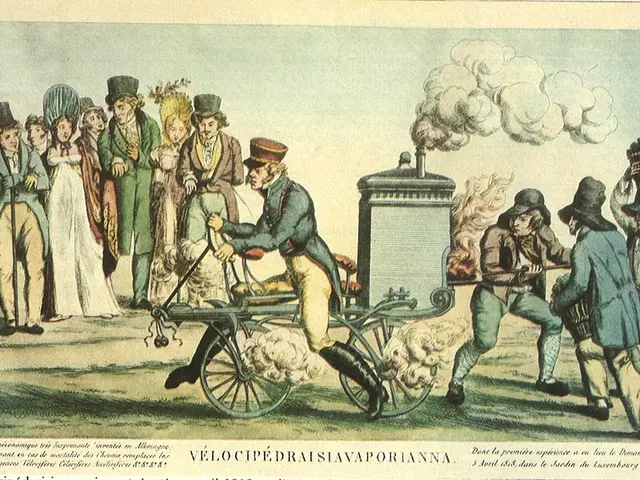Heroin addiction struggle and spiritual rediscovery detailed by RFK Jr; emphasizes urgency for addiction prevention measures and community support.
Rewritten Article:
Robert F. Kennedy Jr. shared his personal journey of heroin addiction, spiritual enlightenment, and recovery at a drug addiction conference, stressing the significance of finding purpose and avoiding drugs for young people.
Addressing a crowd of around 3,000 people at the Rx and Illicit Drug Summit in Nashville, Tennessee, Kennedy painting addiction as a symptom of deeper misery and referred to God numerous times throughout his speech. He described the emptiness within himself he felt as a child that drove him to seek fulfillment in drugs, claiming that threatening consequences like death or ruined lives were meaningless for the addict.
Kennedy avoided discussing recent agency changes, such as budget cuts and organizational restructuring, that experts fear may jeopardize public health, including progress against overdose deaths. Instead, he advocated for practical solutions, like providing Suboxone, methadone, and making rehabilitation facilities accessible for those seeking help.
Kennedy emphasized the importance of prevention as a solution to addiction, viewing it as a problem engendered by a deterioration of family, community, and religious life. He lamented a generation of hopeless youth who have lost touch with their communities, and suggested that policy changes could revitalize both communities and families.
Addressing education and family would help, said Kennedy, recommending that parents abolish cell phones during meals and allow their children to engage in service activities to foster connections. He believed that banishing phones from schools could aid in diminishing drug addiction rates.
Kennedy admitted his own 14-year struggle with heroin addiction, which began in his teenage years. Plagued by promises of quitting to himself and his family, he eventually discovered a book by Swiss psychiatrist Carl Jung that advocated God as a factor in faster, more enduring recoveries. Powerless in his commitment to himself, Kennedy rekindled his faith and began attending 12-step meetings.
The speaker was frequently heckled by those questioning his scientific credibility or beliefs. Escorted out were individuals like University of Washington researcher Caleb Banta-Green, who demanded the audience to "believe science." Banta-Green asserted in an email afterward that there's a need for stronger funding for science-backed addiction treatment programs, over scorning Kennedy's methods.
Enrichment Data:
While Kennedy's prevention recommendations ultimately stem from his personal experiences, numerous studies support the potent impacts of fostering a strong sense of purpose, spirituality, and community involvement in curbing substance abuse. Research demonstrates that community projects, service opportunities, and regular family meals can improve adolescents' resilience against addiction by fostering meaningful connections and promoting a sense of belonging.
Moreover, engagement in social support systems during early adolescence may significantly lower the risk of addiction in adulthood. However, evidence directly linking Kennedy's suggested methods (e.g., cell phone bans in schools) to the reduction of drug addiction remains meager, necessitating further research and evaluation of community-based interventions. Aligning with a societal focus on enhancing community support and personal development, Kennedy's advocacy emphasizes the importance of a holistic approach in preventing drug addiction.
- Robert F. Kennedy Jr., during his speech at the Rx and Illicit Drug Summit, stressed that addiction is often a symptom of deeper misery and suggested finding purpose, spirituality, and community involvement as means to prevent drug abuse.
- Kennedy advocated for practical solutions such as Suboxone, methadone, and accessible rehabilitation facilities to combat drug addiction, highlighting the importance of prevention.
- Despite criticisms regarding his scientific credibility, Kennedy's prevention recommendations are supported by numerous studies showing the positive impact of fostering a strong sense of purpose, spirituality, and community involvement on curbing substance abuse.
- Engagement in social support systems during early adolescence, such as community projects, service opportunities, and regular family meals, can lower the risk of addiction in adulthood.
- Kennedy's suggested methods, like cell phone bans in schools, may aid in diminishing drug addiction rates, although further research and evaluation of community-based interventions are needed to establish a direct link.
- Addressing policy and legislation, like stronger funding for science-backed addiction treatment programs, is crucial to combat addiction and ensure holistic and effective approaches to preventing it.








